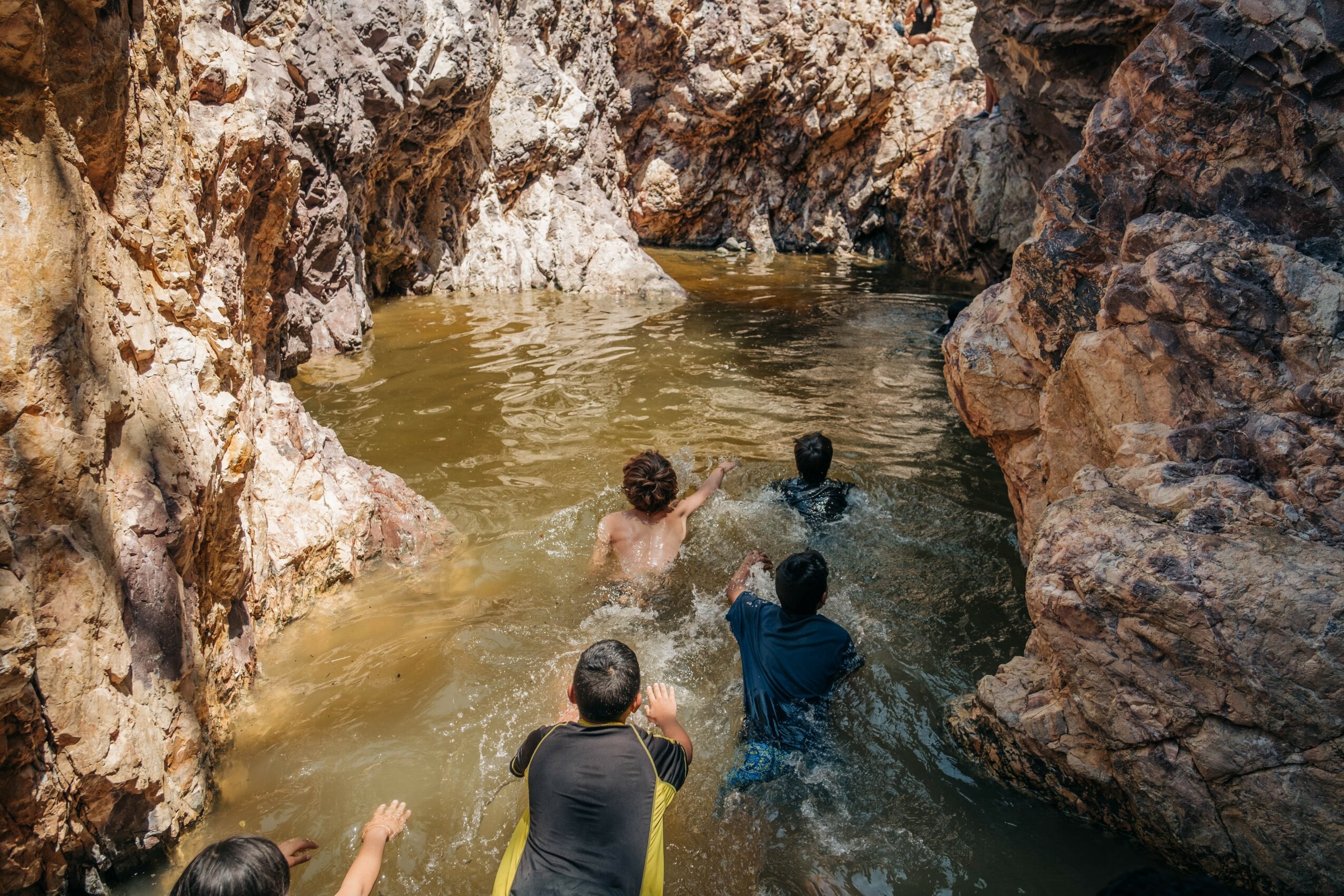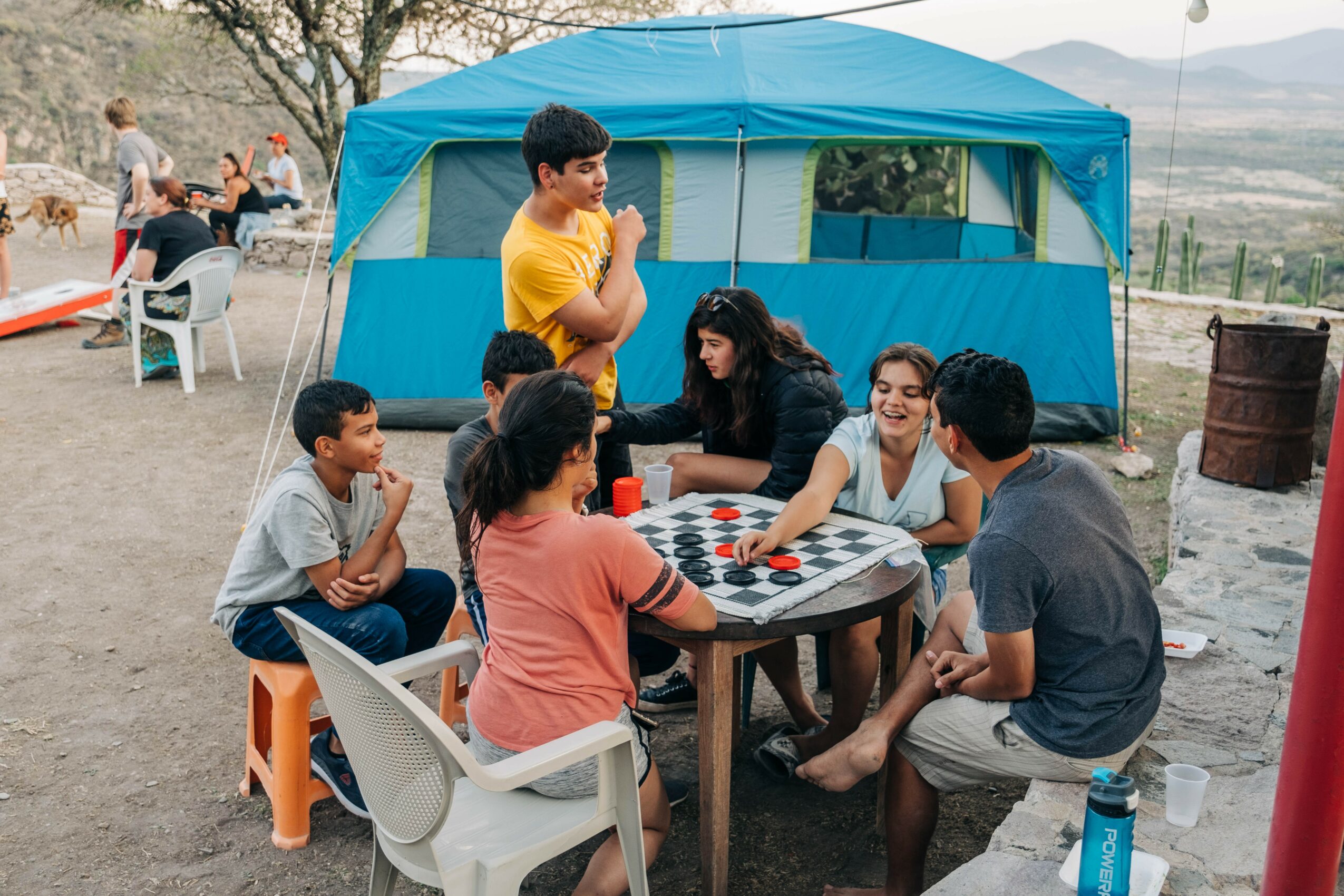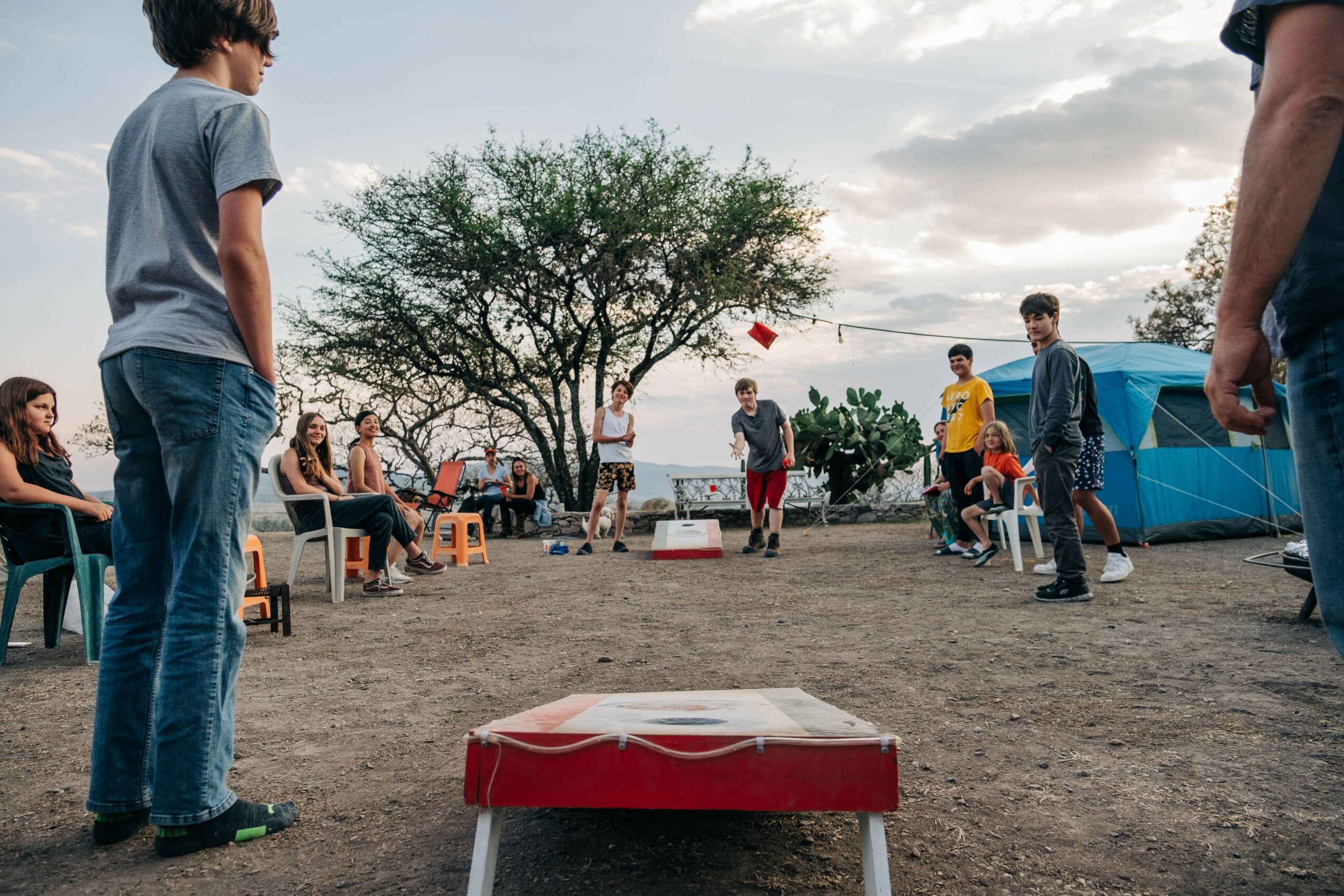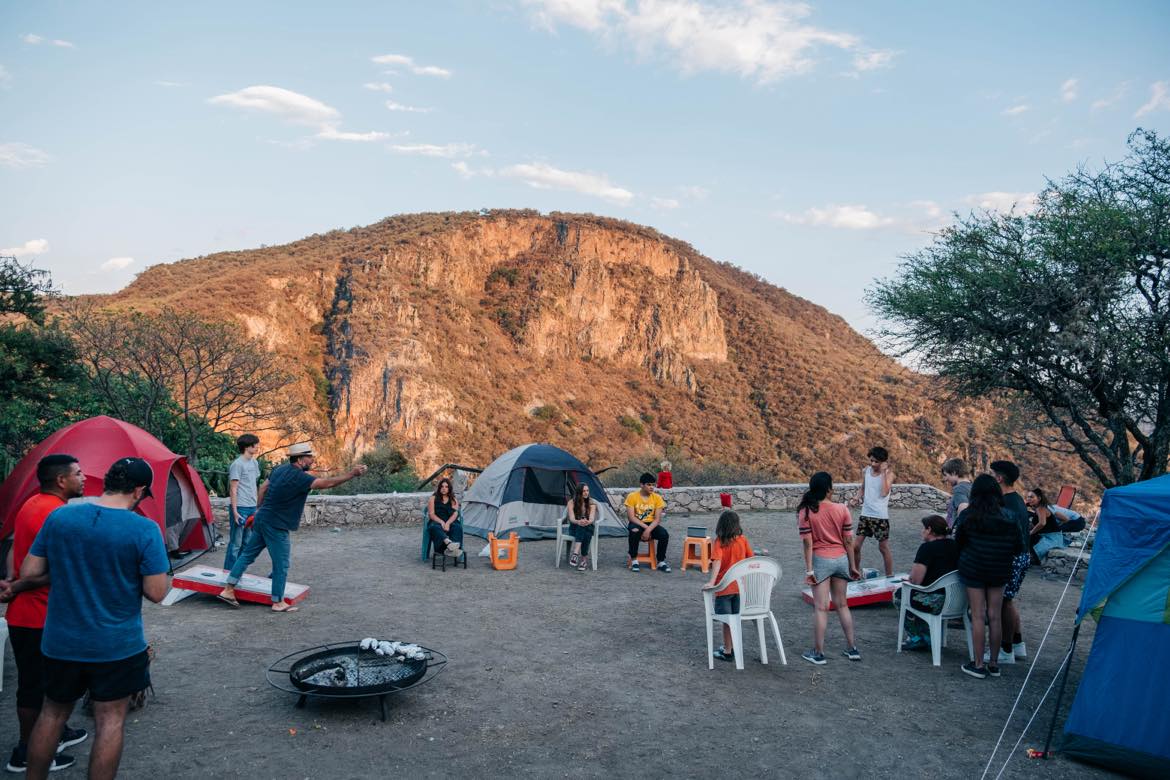

Today we’d like to introduce you to Kirsten Mccormick
Hi Kirsten, it’s an honor to have you on the platform. Thanks for taking the time to share your story with us – to start maybe you can share some of your backstory with our readers?
My journey to where I am today has been a winding road, shaped by a deep passion for youth development and a firsthand understanding of the challenges facing modern parents. It all started when I was 16 and went on a service trip to the Philippines. That experience opened my eyes to the power of real-world connections and experiences in shaping young lives.
Fast forward to my adult life: I’m a mom of five and a trained musician with a background in theater and outdoor education. These diverse experiences gave me a unique perspective on how to engage and empower young people. In 2017, my family and I embarked on a full-time travel adventure, living in a converted school bus. This period reinforced my belief in the importance of real-world experiences for children and teenagers.
The real turning point came during the pandemic. Like many parents, I watched my teenagers retreat into their screens as their social lives moved entirely online. It was then that I realized the urgent need for programs that could help teens unplug and reconnect with the real world.
This realization led me to found Teen Connect in Mexico, where we’d relocated. What started as a local initiative to get teens outdoors and interacting face-to-face quickly grew into a thriving community. We now offer adventure camps, language exchange programs, and various activities designed to build confidence, foster connections, and develop leadership skills.
As Teen Connect grew, I became increasingly aware of the broader issues facing teenagers today. This year, I’ve been conducting extensive research on teen stress and the effects of cell phone and social media use on teen mental health. The findings have been eye-opening and have further fueled my commitment to helping teens and their parents navigate this digital age.
In response to what I’ve learned, I’ve written a guidebook for parents called “Unplug to Reconnect.” It’s designed to provide practical strategies for managing screen time, fostering real-world connections, and supporting teen mental health. I’m actually offering free digital copies this month because I believe this information is crucial for every parent.
Today, my work with Teen Connect and my ongoing research form the core of my mission: to empower teenagers to build meaningful connections, develop crucial life skills, and become the leaders of tomorrow. It’s a journey that’s been challenging at times, but incredibly rewarding, and I’m excited to see where it leads next.
I’m sure it wasn’t obstacle-free, but would you say the journey has been fairly smooth so far?
The road has certainly not been smooth, but the challenges have been instrumental in shaping both Teen Connect and my understanding of what today’s teens and parents truly need.
One of the most personal struggles came during the pandemic when my own children, like many others, found themselves living mostly online. As a parent, watching my kids retreat into digital worlds for school, socializing, and entertainment was deeply concerning. It was a stark reality check that pushed me to action, but it also made me acutely aware of how difficult it can be to pull teens away from their screens when the entire world seems to be pushing them online.
This experience with my own family highlighted another significant challenge: the initial skepticism from both teens and parents about the value of unplugging and engaging in real-world experiences. In a world where digital connection is the norm, proposing face-to-face interactions and outdoor adventures was often met with resistance. Many teens were already accustomed to living mostly online, which is the path of least resistance.
My research into teen stress and the effects of cell phone and social media use has also been eye-opening and, at times, disheartening. The statistics on teen mental health are alarming, and finding effective ways to address these issues while acknowledging the reality of our digital world has been a complex challenge. However, it has been incredibly rewarding to watch how teens respond when given the opportunities to unplug and truly connect in person. They transform in ways that are beautiful to behold.
Alright, so let’s switch gears a bit and talk business. What should we know?
Teen Connect is more than just a program – it’s a movement to reconnect teenagers with the real world and with each other. We specialize in creating immersive, unplugged experiences that foster genuine connections, build confidence, and develop crucial life skills in young people.
At our core, we offer adventure camps for teens from the USA to come immerse and explore and community programs in Mexico that challenge teens to step away from their screens and engage with the world around them. These aren’t your typical summer camps – we’ve designed our experiences to address the unique challenges facing today’s digitally native teenagers.
What sets us apart is our holistic approach to teen development. We don’t just focus on outdoor adventures or leadership exercises; we create an environment where teens can rediscover themselves away from the pressures of social media and constant connectivity. Our programs blend elements of cultural immersion, outdoor challenges, community service, and peer-to-peer interaction to provide a truly transformative experience.
One of our key differentiators is our emphasis on real-world problem-solving and community engagement. Teens in our programs don’t just participate in pre-planned activities; they actively contribute to local community projects, learning valuable lessons about global citizenship and the impact they can have on the world.
I’m particularly proud of how we’ve managed to create a safe space for teens to be vulnerable and authentic. In a world where many young people feel pressure to present a perfect image online, our programs allow them to let their guards down and form genuine connections with their peers. The transformations we see – from anxious, screen-dependent teens to confident, engaged young leaders – are truly remarkable.
Another aspect that sets us apart is our commitment to ongoing support and community building. Our impact doesn’t end when a camp or program finishes. We’ve cultivated a vibrant community of Teen Connect alumni who continue to support each other and engage in real-world activities long after their initial experience with us.
We’re also deeply committed to accessibility. While our primary programs take place in Mexico, we’re constantly developing resources and strategies that parents and teens can implement at home. Our goal is to spark a wider movement of teens choosing real-world engagement over digital dependence.
What I want readers to know about Teen Connect is that we’re not anti-technology – we’re pro-balance. We recognize the importance of digital literacy in today’s world, but we believe it needs to be balanced with strong real-world skills and connections. Our mission is to empower the next generation to use technology as a tool, not a crutch.
Ultimately, Teen Connect is about giving teenagers the space, support, and challenges they need to develop into confident, compassionate, and capable young adults. We’re not just unplugging teens from their devices; we’re plugging them into experiences that will shape the rest of their lives.
In terms of your work and the industry, what are some of the changes you are expecting to see over the next five to ten years?
Looking ahead to the next 5-10 years, I see several significant shifts and trends emerging in the youth development and digital wellness industry:
1. Increased focus on digital detox and real-world experiences:
As the negative effects of excessive screen time become more apparent, I anticipate a growing demand for programs that offer meaningful offline experiences. We’ll likely see more initiatives that help young people disconnect from technology and reconnect with nature, their communities, and themselves.
2. Integration of mental health and digital wellness:
Mental health concerns among teenagers are likely to remain a critical issue. I expect to see a more integrated approach where digital wellness is considered a key component of overall mental health. Programs and interventions will increasingly address the intersection of technology use, social media exposure, and mental wellbeing.
3. Emphasis on building “real world” social skills:
As more interactions move online, there will be a greater need for programs that help teens develop face-to-face communication skills, empathy, and emotional intelligence. I foresee a resurgence in initiatives focused on interpersonal skills and community building.
4. Personalized digital wellness plans:
One-size-fits-all approaches to managing technology use will likely give way to more personalized strategies. We may see the development of AI-driven tools that help individuals create and maintain healthy digital habits based on their unique needs and circumstances.
5. Rise of “tech-positive” education:
Rather than demonizing technology, I believe we’ll see more programs that teach young people how to use technology mindfully and productively. This might include courses on digital citizenship, ethical tech use, and leveraging technology for positive social impact and entrepreneurship.
6. Global and exchange programs:
I anticipate growth in programs that use technology to connect people in order to have more in person experiences.
7. Focus on digital literacy and critical thinking:
With the rise of misinformation and deep fakes, there will be an increased emphasis on teaching young people how to navigate the digital world critically and discerningly.
8. Regulation and industry responsibility:
I anticipate more regulations around how technology companies can engage with young users. There may also be a push for these companies to take greater responsibility in promoting digital wellness, perhaps through built-in tools and features that encourage healthy usage patterns INSTEAD of trying to create more usage and addiction, which is the current reality.
Contact Info:





Image Credits
Lorraine Daley, Ian Gough










